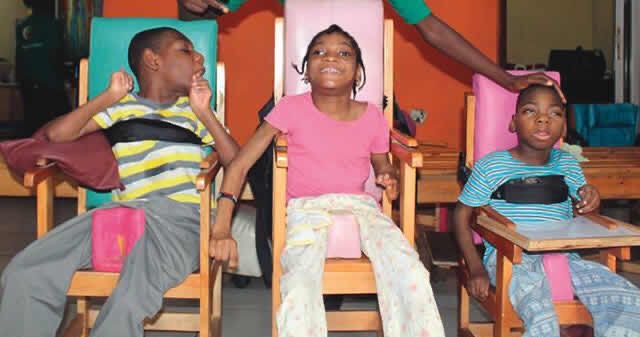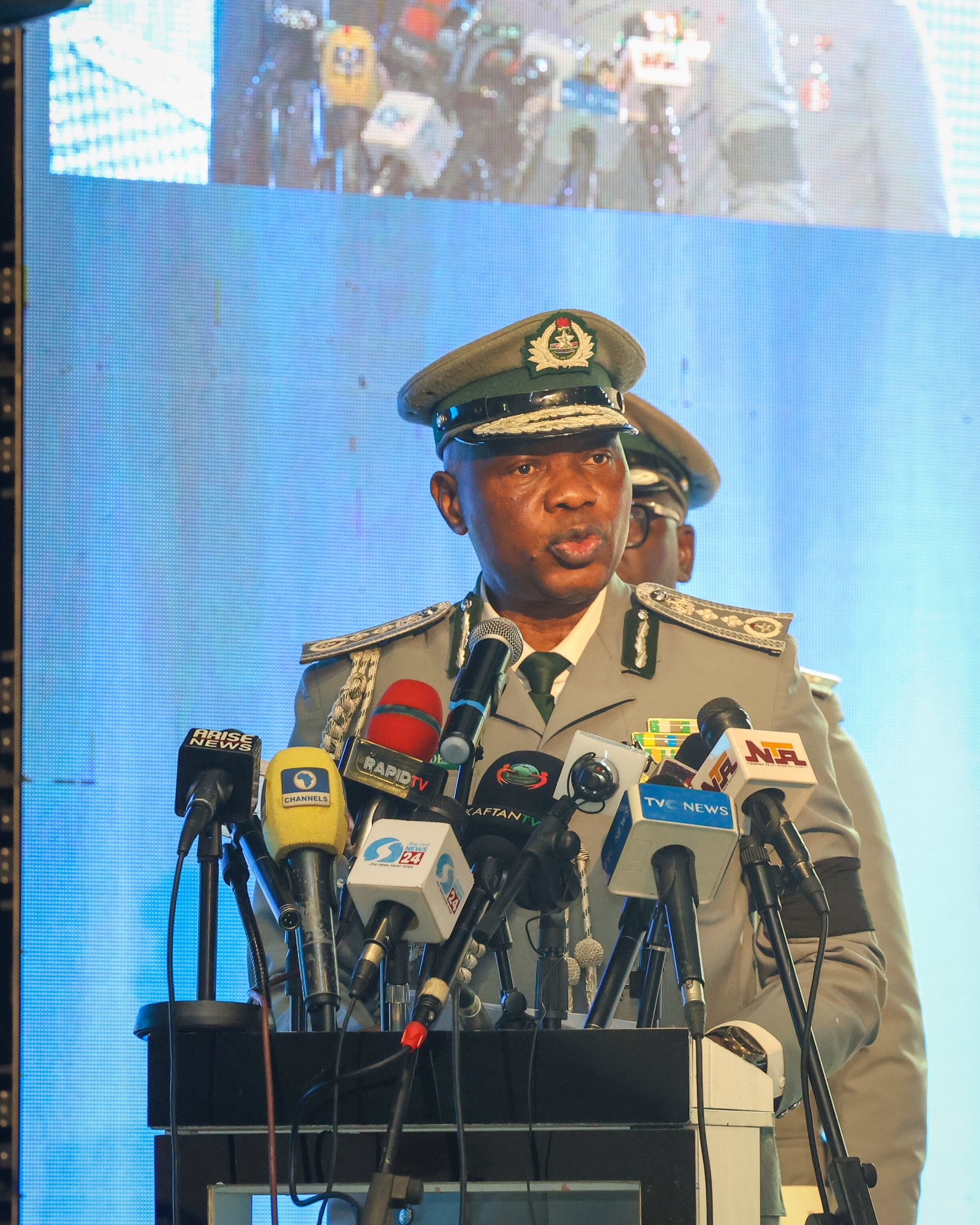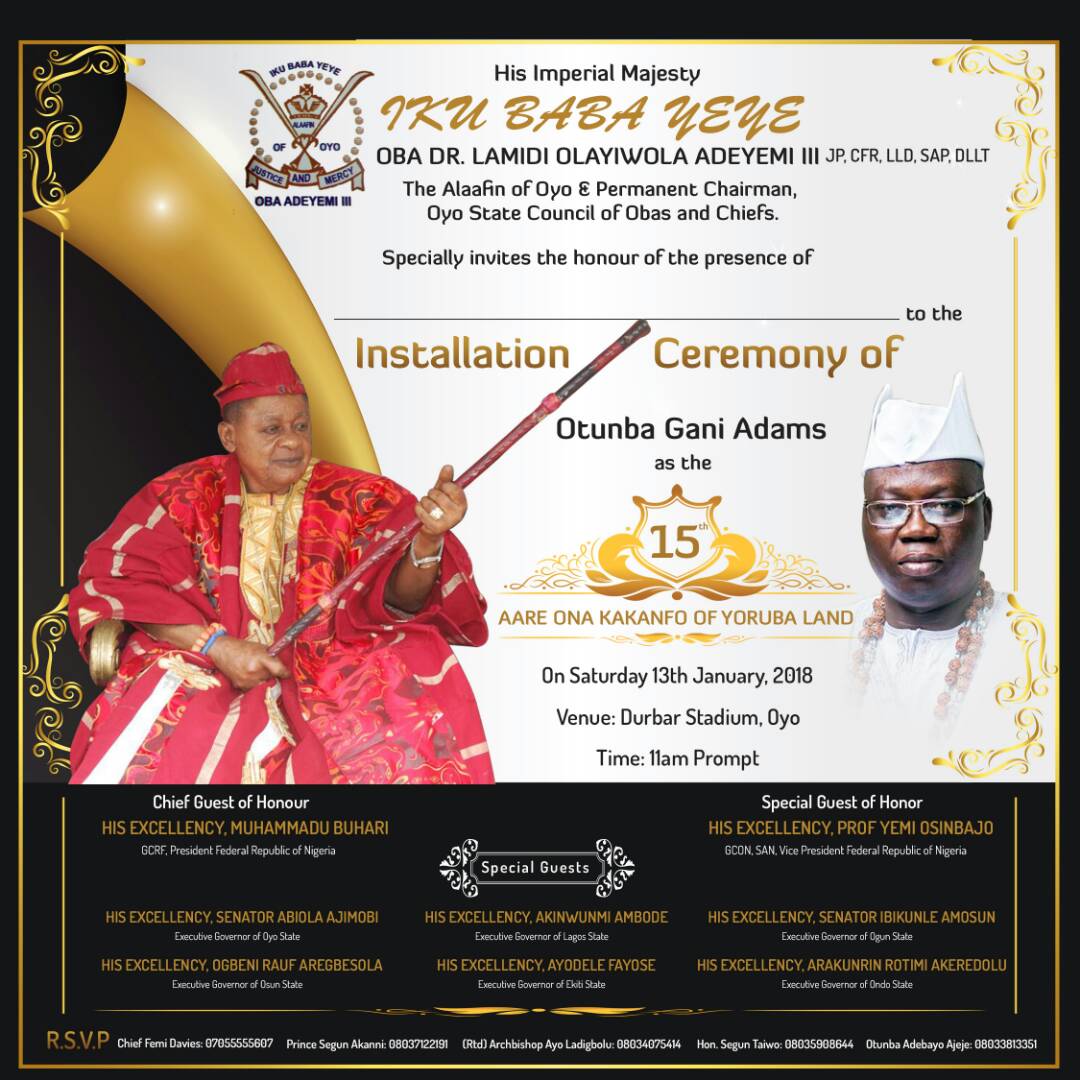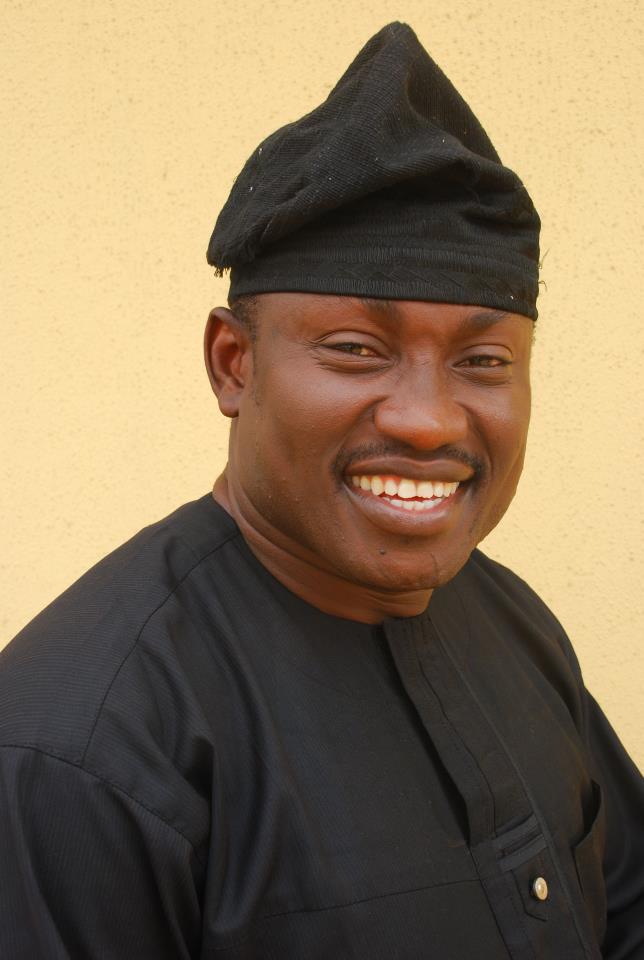Opinion
How FirstBank Employees are Making a Difference in their Immediate Environments Through the SPARK Initiative
Published
3 years agoon

Every other day, social media brings us a picture or video of a dilapidated school somewhere in Nigeria or shares images of a distraught widow, a struggling roadside trader or street hawker, or some other hapless victims of the extremely harsh realities of living in Nigeria. Immediately, as if on cue or automated, viewers launch into stinging attacks of government, public officials, the privileged class and even Nigeria itself. The attacking mob wastes no time in calling for the government’s head or the heads of public officials with responsibilities in the jurisdiction or sector where the unfortunate sights surfaced from.
The online mob seems unconcerned that while its eyes and ears, aided and locked in by the binoculars and headsets of social media, are completely focused on distressing situations it may not be able to help other than rant about, countless situations that it can help are calling for attention in its immediate neighbourhood every single day. Focusing on things so far away while ignoring or pretending not to see the things in one’s immediate vicinity is a human tendency which is well recognised. Journalists even have a term for a similar or related behaviour among their own. “Afghanistanism” is the tendency of the media to focus on news and happenings in remote places and other parts of the world to the exclusion or neglect of covering happenings and problems in the local environment of the media. It is like the psychological or emotional equivalent of the eye defect medical practitioners refer to as hyperopia or farsightedness. Sufferers can see objects that are far away but have difficulty focusing on objects that are up close.
By focusing on faraway objects people do not have to offer to give a helping hand but can offer their finger to point at others and their tongue to criticise and pontificate. Everyone can criticise and pontificate online or become an “e-warrior”, like Nigerians like to call it, fighting government and whoever and whatever in society they are unhappy with from the comfort and safety of their bedroom and behind their keyboard. It is the easiest of things to do but not the noblest or kindest. It is the well-trodden path but should never be confused with taking the high road in reaching out with compassion to people around whose lives and circumstances could do with some kindness.
Taking the high road rather than practising Afghanistanism or psychological hyperopia is the approach adopted by First Bank of Nigeria Limited, the premier bank in West Africa with its impact woven into the fabric of society. This approach has played an important role in sustaining FirstBank’s development-oriented services for over 127 years as the region’s foremost financial inclusion services provider. It has been a driving motivation for how the bank operates. FirstBank always considers the impact of all its operations and actions on customers and other stakeholders, including the environment, to ensure it is making a net positive difference in the end. And this orientation has attracted to the bank people who share a similar outlook – whether as employees, partners or other stakeholders. They look forward every year to an opportunity to follow in the footsteps of the bank and make a net positive difference in their own immediate environments. These men and women do not pretend that they can solve or intervene in all the challenging situations confronting people in their immediate environments but they do not refrain whenever they can lend a helping hand and make a difference.
Through an Employee Giving and Volunteering programme employees of FirstBank find a ready platform to fully identify with the compassionate disposition of the bank, which further has a number of initiatives that enable employees to give expression to this identification. The Start Performing Acts of Random Kindness (SPARK) Initiative is but one such initiative. Aimed at expanding and deepening FirstBank’s involvement within the communities of its various stakeholders, SPARK seeks to do so by integrating and institutionalising random acts of kindness in society. Among employees SPARK has inspired and encouraged kindness and empathy as well as consideration for others. It has also contributed to employee bonding and teamwork, which have been critical to enhancing work performance.
This year’s implementation of the SPARK Initiative has seen employees under the banner of their various departments make choices regarding the specific nature of intervention they would want to undertake and the specific group of people or institutions within their immediate communities that they would want to extend the milk of human kindness to. Employees and their departments could choose any one of the four areas that constitute FirstBank’s corporate responsibility and sustainability (CR&S) pillars: Education, entrepreneurship, health and welfare, and environment. Under education, they have had a choice to make between support for infrastructural facilities in schools, such as renovation of dilapidated buildings, painting of school buildings, and provision of laptops and desktops; or donation of items such as classroom chairs and tables, books and stationaries; or provision of scholarships for best students, feeding of school students per day or week, funding of a school initiative such as JETS club, bootcamp, space club, etc. If employees and their departments were interested in supporting entrepreneurship, then they had the chance to empower through entrepreneurship programmes of their choosing such as sponsoring youth and women to acquire skills like fashion designing, baking, hairstyling, make-up artistry, electrical repairs, event decoration and planning, catering, etc., or enabling entrepreneurs with tools and equipment to work or supporting SMEs and start-ups.
Where the health and welfare area was their preferred area of intervention, employees and their departments could choose from: donations to orphanages (selected from an approved list of orphanages); support to a good cause, for example lending a helping hand to the Down Syndrome Foundation; support to widows; support to people with health-related issues; and off-setting medical bills. And if employees and their departments were to decide to go for the environment, then they could choose from: support to environmental issues, such as support to Nigerian Conservation Foundation (NCF) initiatives; donation of garbage cans to a community; partnership with a recycling firm to recycle waste; support to LAWMA such as donating cleaning tools (brooms, dustbin parkers), etc.
While several departments in FirstBank did things worth showcasing so the good citizens of Nigeria (individual and corporate) can emulate, this piece has just enough space to accommodate the activities of only three departments: Human Capital Management and Development (HCMD), Compliance, and Marketing and Corporate Communications (M&CC) departments. The employees in these departments seemed involved in efforts to outdo each other in acts of kindness, which made more sense and would leave a real difference on the ground as against criticising and pontificating online on faraway issues.
The Human Capital Management and Development department decided that reaching out to one of the most vulnerable groups in Nigeria – underprivileged widows and their underfed children – was the best way they could stay true to the “Human” in their name. And employees in the department moved beyond their Marina location to the nearest environment where some of the most vulnerable widows are to be found to go show kindness. The Makoko community situated in Lagos Mainland and which CNN once described in a report as “Nigeria’s floating slum” was overwhelmed to receive the august visitors from HCMD bearing so much food stuff to benefit their widows and children. What they did not realise was the overwhelming sense of gratitude felt by their benefactors for the opportunity to be able to give back.
Tagged “Feed a Widow Initiative”, the undertaking was HCMD employees’ way of putting a smile back on the faces of widows in impoverished communities and they got more than they could ever have imagined. Their hosts received them with the broadest of smiles and said goodbye to them with the grandest of gratitude; and they left with very broad smiles on their own faces. The jury is still out on who between the hosts and their guests ended up with the broadest of smiles on the day. And given the “fierce contest” to outdo the other in smiling, one is again forced to wonder why people labelled e-warriors would choose to forfeit this kind of real joy for the joyless world they have locked themselves in by clinging on to Afghanistanism and psychological hyperopia.
Not so for employees in the Compliance department. Not to be outdone and, in fact, as though going up the hierarchy of human needs, Compliance employees decided that they would focus on the education need of their beneficiary community. HCMD had done an excellent job of providing the basic “stomach infrastructure” without which it would be difficult, if not impossible, to get any of the beneficiaries interested in any talk about more sublime matters like education and mental development. So, employees of Compliance department, in order to encourage pupils to continue their pursuit of education, procured Mathematics and English Language textbooks for 617 pupils who would be in senior secondary (SS) 1 and 2 classes of Gbara Community Secondary School in Jakande, Ajah in the next academic session. The visit to the school and book donation were undertaken when the pupils were in the third term preceding the new academic session.
The gesture was Compliance employees’ own way of giving back in such a manner as to relieve the pupils of this public school, particularly those from indigent homes, and their parents or guardians of the financial burden involved in providing textbooks for the two core subjects. It was also, in an uncanny way, an attempt by the employees to ensure the pupils were in full compliance with the requirements for taking on the two most important subjects in the secondary school curriculum, putting the pupils at a vantage position to excel in these two essential subjects. There were other benefits of the engagement that the employees noted. They observed that their presence in the school inspired the children, giving them “hope that a better life was within reach and could be achieved.” The employees thus expressed optimism that the engagement boosted the children’s interest in succeeding in life through the pursuit of education.
For employees of the Marketing and Corporate Communications department (M&CC), entrepreneurship was the area they decided to focus on, to make a difference in their own immediate environment. Every day they came to their office on Broad Street or the bank’s head office in Marina, they passed by a number of roadside traders around the various office buildings in the locations. They observed that some of these traders were exposed to the elements or having difficulties in their business and struggling to make ends meet, and decided that they would do something about it. And true to their word, they did something about it that made so much difference in the businesses and circumstances of the traders. They provided the traders the following: branded umbrella to offer shade from both sun and rain, improving the conditions under which they operated and their quality of life; branded chairs and tables to accommodate more customers in their corner as well as grants to boost their business capital.
Anyone who has met with employees in the corporate communications department of any major bank in Nigeria would readily admit that these professionals have among them some of the most skilful digital marketers around. So, it is not for lack of skills to be e-warriors that M&CC employees chose to extend the milk of human kindness flowing in them to roadside traders around their office rather than practise Afghanistanism. They could have chosen to concentrate all their time and resources on attacking the government online and blaming public officials for all the challenges in the economy and the spate of insecurity all over the nation and whatever else would make M&CC employees true champions of Afghanistanism and psychological hyperopia. But would that make any difference to the lot of the roadside traders around them and lessen their burden? So, M&CC employees chose the road less travelled but one that could deliver the desired impact, and it did.
There are so many lessons to draw and feelings to take away from the examples demonstrated by employees of these three departments in Nigeria’s foremost lender. Besides committing their time and resources to their chosen humanitarian initiatives using the platform of the SPARK Initiative that places FirstBank at the forefront of the social impact space through employee advocacy, the employees have shown that they have the milk of human kindness flowing through their veins. They have demonstrated that they would rather consider how they could extend kindness to people around them and make a difference than pretend not to see the situations affecting those around them while playing Afghanistanism and psychological hyperopia online.
For the rest of us who are not FirstBank employees, the message could not be clearer: The next time we feel like we must share on social media distressing images to provoke government-bashing or we feel constrained to make stinging comments on such images that are shared to criticise Nigeria, we should first pause and look around us. We should look to see if we can identify situations where we, not government or Nigeria, can make a difference. Then we should take our fingers off the keyboard and go out there or make that call that will make a difference in some other person’s life and circumstances. We should be like FirstBank and its employees. We should follow their example of trying to outdo themselves in showing kindness to others. We should start where we are with what we have, to make a difference right now – yes, this very minute and not some future time.
You may like
-


WITH GIANTS CAMPAIGN, FIRSTBANK IS TRULY WOVEN INTO THE FABRIC OF SOCIETY
-


FIRSTBANK MAINTAINS IMPRESSIVE PERFORMANCE, POSTS N238.53BN PBT IN Q1 2024
-


DECEMBERISSAVYBE: FIRSTBANK SPONSORS KAKADU THE MUSICAL
-


DECEMBERISSAVYBE: FIRSTBANK CELEBRATES FEMALE SINGERS, SPONSORS ‘A NIGHT OF QUEENS’ CONCERT
-


HOMECOMING WITH DECEMBERISSAVYBE 2023: FIRSTBANK REINFORCES SUPPORT FOR FAMILY, ENTERTAINMENT AND NATION BUILDING
-


FirstBank UK Adopts Bloomberg TOMS to Optimize Fixed Income Workflow
Opinion
Rejoinder: “I Don’t Know Justice Osiagor from Adam”: Adegboruwa and the Distortion of Truth
Published
1 month agoon
December 12, 2024
By Valentine Idedia
It is regrettable and deeply troubling to read Ebun Adegboruwa SAN’s feeble response titled “I don’t know Justice Osiagor from Adam,” in an attempt to deflect attention and create a diversion through disinformation, all while a court case is ongoing. This has been a hallmark of this simple civil dispute since it began in 2022.
Frankly, no one is concerned about whether Adegboruwa knows Justice Osiagor. He is free to associate with the judge, but that should not interfere with a case of this significance. The real issue is Adegboruwa’s disregard for the judicial process, which has led to unnecessary controversy.
The case centers on Maurice Etim, a minority shareholder and director of several companies within the Edmark Group, and his co-director, Sam Low Ban Chai, a Malaysian businessman under investigation by Interpol for serious criminal offenses, including forgery, fraudulent corporate practices, and money laundering.
Etim claims that his signature was used without his consent for corporate resolutions, financial statements, tax filings, and more. These allegations prompted an official investigation, and the Nigerian Attorney General, in collaboration with Interpol, has uncovered substantial evidence, including over 500 bank accounts opened in Edmark’s name without Etim’s approval.
The focus now should be on Adegboruwa’s behaviour throughout this case. Settlement talks initially occurred but broke down when Etim refused to agree to a condition barring him from pursuing legal action. Since then, Adegboruwa’s legal tactics have taken a concerning turn.
While Adegboruwa can claim not to know Justice Osiagor, his insistence (following his letter to the Chief Judge of the Federal High Court) that it must only be Justice Osiagor that will handle his cases on the Edmark matters is intriguing.
This is despite Justice Osiagor’s earlier decision in a sister case, which favours Adegboruwa, raising serious questions, where Osiagor held that the police should be stopped from investigating Maurice’s complaint of forgery of his signature on a board resolution—a document that is part of Adegboruwa’s defence to the Maurice petition for unfairly prejudicial conduct.
Adegboruwa described Justice Aneke as unfair. He is not satisfied that the matter is before Justice Dipeolu. The distinguished SAN wants the matter returned only to Justice Osiagor.
It appears that it is only Osiagor who can do justice in the legal world of Adegboruwa. Is he saying that all the other justices of the Federal High Court, including the senior Justices in the Lagos Division, are not fit and proper to be judges?
Issues of Judicial Bias
What is even more baffling is the series of petitions, motions, and allegations of bias put up by Justice Osiagor. Osiagor had previously handled a case involving Adegboruwa, creating a potential conflict of interest.
Etim’s counsel requested Osiagor’s recusal from two pending suits, and while Osiagor agreed to recuse himself from one, he refused to do so for the primary petition, where Adegboruwa represented the Respondents.
When Etim’s counsel appealed, Osiagor dismissed the motion for a stay of proceedings and vacated earlier interlocutory orders without formal application. He then appointed a junior auditor, Samuel Ibrahim, against Etim’s request for a more qualified firm.
Later, Osiagor replaced Ibrahim with Ariyibi, who was found to have a close connection to Osiagor’s church—a relationship not disclosed at the time.
Questionable Orders and Interventions
Etim’s counsel opposed the auditor’s actions and filed for intervention, but Justice Osiagor ruled against them. Additionally, Osiagor granted orders restricting Etim’s access to the Edmark Group’s premises in a separate petition, despite objections from Etim’s counsel.
Meanwhile, Adegboruwa filed a new action in the Lagos State High Court for more restraining orders, which were challenged by Etim’s counsel as an abuse of the court process.
To complicate matters further, the police were involved in enforcing these orders, despite questions about their legitimacy. The intervention of the Inspector General of Police was required to halt the unlawful execution.
Etim’s counsel also sought Justice Osiagor’s recusal from the subsidiary petition, which was granted in November 2024.
Public Concern
The public is left wondering: What is the nature of the special relationship between Adegboruwa SAN and Justice Osiagor? Why has Adegboruwa insisted that only Justice Osiagor should preside over this matter?
Justice Osiagor’s emotional outburst in court and his subsequent recusal do little to mask the apparent bias and possible collusion between him and Adegboruwa.
This situation is a clear example of the Tragedy of the Commons, where individuals act solely in their own self-interest, ultimately causing harm to all parties involved. This behaviour reflects a broader problem in Nigeria’s legal system.
Conclusion
Ebun Adegboruwa SAN’s actions in this case are tarnishing his reputation and casting a shadow over the legal profession. His tactics, including judicial intimidation, obstruction of justice, and the abuse of state power, suggest that his earlier image as a human rights advocate may have been a façade for self-serving ambitions.
By manipulating legal processes for personal gain, Adegboruwa risks losing the respect he once commanded and may be remembered not as a defender of justice, but as a legal villain who uses his position to manipulate the law.
Valentine Idedia, Sales and Marketing Specialist and has followed the court proceedings closely. He is also an an avid interest in fighting injustice
Reference: https://www.facebook.com/share/p/1FSpUJ9gQU/
Opinion
PWD: When Negligence Stole a Childhood: A Parent’s Painful Journey
Published
2 months agoon
November 18, 2024
By Oluwaseyi Oluwabiyi
(This article is based on a true story. Names and certain details have been altered to protect the privacy of those involved.)
When Tolu and Ade welcomed their first child, they were filled with hope and excitement. But their joy quickly turned into heartbreak when medical negligence during delivery caused their daughter to develop cerebral palsy. What followed was a six-year journey of sacrifice, frustration, and resilience that forever changed their family.
The experience shook their faith in the Nigerian healthcare system, forcing them to seek treatment abroad and make unimaginable sacrifices to provide their child with the care she needed. Today, they share their story to support others facing similar struggles and call for accountability and systemic change.
A Shattered Dream
Tolu recalls the day her baby was born with a mix of pain and anger. “It was a long labor, something felt off and I kept asking for help, but the doctor dismissed my concerns,” she says. The delay in intervention resulted in oxygen deprivation, and the diagnosis of cerebral palsy came weeks later.
“We didn’t understand what it meant at first,” Ade explains. “But as the weeks turned into months, we realized how drastically our lives were going to change.”
The couple was devastated not just by the diagnosis, but by the knowledge that their child’s condition was preventable. “Knowing that a doctor’s negligence altered her life forever broke something in us,” Tolu admits.

The Search for Better Care
Determined to give their child a fighting chance, Tolu and Ade traveled abroad in search of better medical care, staying there for nearly eight months. The move came with difficult decisions. Ade, a promising professional in his field, had to sacrifice his career to stay back and care for their daughter, while Tolu returned to Nigeria to continue working and support the family financially.
“It was the hardest decision we’ve ever had to make,” Ade shares. “I had to set aside my ambitions and focus entirely on her care. But I knew it was what she needed.”
The separation tested their marriage and their resolve. “Being apart from my family and working in Nigeria while they were abroad was exhausting,” Tolu says. “But we didn’t have a choice. We couldn’t both leave work, and we needed the money to afford her treatments.”
Everyday Challenges
Caring for their daughter was more than a full-time job. She couldn’t walk and had to be carried everywhere. She couldn’t control her bowel movements and had to be fed through a tube inserted into her stomach.
“We hired caregivers because we needed the help, but it came with its own problems,” Ade says. “Some of them were rude and careless, and we had to tread carefully so they wouldn’t leave or maltreat our daughter in our absence. It was exhausting to constantly manage both their behavior and our child’s care.”
The financial burden was overwhelming, but the emotional toll was even heavier. “There were days I couldn’t stop crying,” Tolu confesses. “I felt like I had failed her, even though deep down I knew it wasn’t my fault.”
A Life Too Short
Their daughter lived for six years before complications from her condition led to her passing. “She was our light, even in the darkest moments,” Ade says. “Losing her felt like losing a part of ourselves.”
The grief was compounded by anger at the system that had failed them. “She didn’t have to go through all that suffering,” Tolu says. “We trusted the doctor, and he let us down and to think that he was my gynecologist all through the pregnancy. That’s something I’ll never forget.”
Despite their pain, the couple has found ways to honor their daughter’s memory by sharing their story and supporting others.
What They Want Others to Know
When asked what advice they would give to parents in similar situations, Tolu and Ade share the lessons they learned through their journey:
1. Speak Up Early
“If something feels off, don’t hesitate to speak up and demand better care,” Tolu says. “Don’t let anyone dismiss your concerns.”
2. Find a Support Network
“You can’t do it alone,” Ade adds. “Lean on friends, family, or even support groups. Having someone to talk to makes a difference.”
3. Focus on the Love
“It’s easy to feel overwhelmed by the challenges,” Tolu says. “But don’t lose sight of the love you have for your child. That’s what will keep you going.”
4. Hold the System Accountable
“The healthcare system must do better,” Ade emphasizes. “Doctors need to be trained and retrained, and there should be consequences for negligence.”
The Broader Conversation
Across Nigeria, countless families are grappling with the fallout of preventable medical errors. Their experience highlights the urgent need for reforms in the healthcare system, not just for better practices, but for accountability and support for affected families.
“Her life mattered,” Tolu says. “And if sharing her story can spark change, then her legacy will live on.”
Opinion
Bashir Adewale Adeniyi: adeptly navigating customs complexities with commitment and proficiency
Published
2 months agoon
November 14, 2024


Kindness Defeats Witchcraft: Apostle Suleman’s Cross-Over Lecture at ‘Mercy Night’

Lagos History Comes on Screen as Jide Kosoko Shoots Esugbayi Eleko

Agbado Youths Celebrate Historic Succession, Rally Support for Prince Akintoye as King

FASHIONPRENUER, BRIDGET AGBA’S JOCHLIEU APPAREL SET FOR SECOND SALES BASKET

Pan African Online Film Festival Open Entry for Online voting

ALAFIN OF OYO RELEASES INVITATION CARD FOR INSTALLATION OF OTUNBA GANI ADAMS AS 15TH AARE ONA KAKANFO

Trending News
-

 Uncategorized5 years ago
Uncategorized5 years agoFASHIONPRENUER, BRIDGET AGBA’S JOCHLIEU APPAREL SET FOR SECOND SALES BASKET
-

 Entertainment6 years ago
Entertainment6 years agoPan African Online Film Festival Open Entry for Online voting
-

 Uncategorized7 years ago
Uncategorized7 years agoALAFIN OF OYO RELEASES INVITATION CARD FOR INSTALLATION OF OTUNBA GANI ADAMS AS 15TH AARE ONA KAKANFO
-

 Uncategorized7 years ago
Uncategorized7 years agoTIMI OF EDE’S WIFE, QUEEN ABDUSALAM AISHAT YETUNDE RELEASES BEAUTIFUL PICTURES TO CELEBRATE HER BIRTHDAY
-

 Uncategorized7 years ago
Uncategorized7 years agoPopular Actor Kolade Segun-Okeowo’s Large Heart
-

 Uncategorized7 years ago
Uncategorized7 years agoAIR PEACE BOSS; BARRISTER ALLEN ONYEMA CELEBRATES LOVE
-

 Uncategorized7 years ago
Uncategorized7 years agoNIGER STATE PDP GOVERNORSHIP ASPIRANT, UMAR NASKO, CELEBRATES WEDDING ANNIVERSARY WITH ADORABLE FAMILY PICTURES
-

 Trending News4 years ago
Trending News4 years agoSeyi Vodi Still Waxing Stronger, Takes Fashion Business To Another Level






